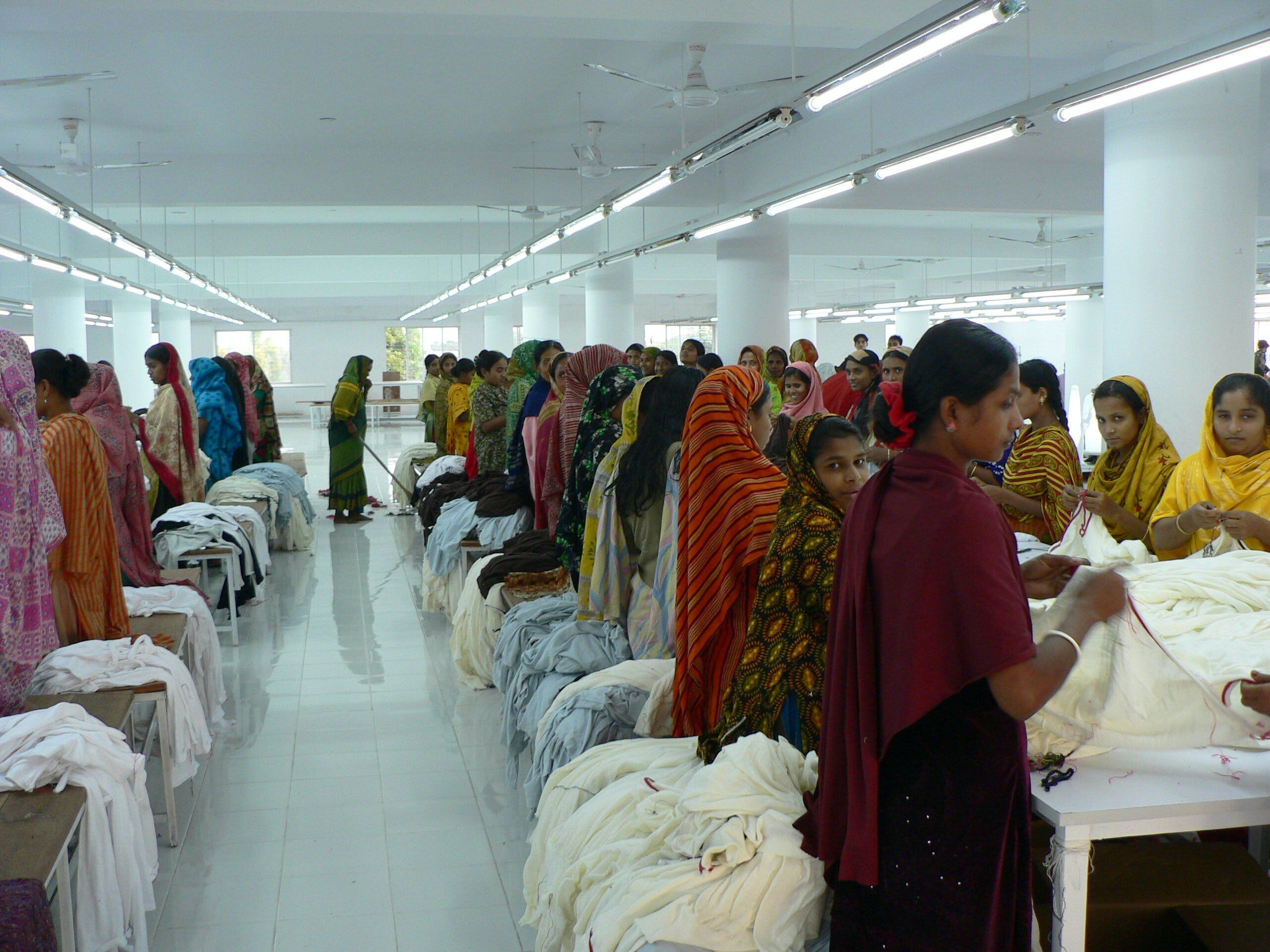
Bangladesh’s garment industry, the world’s No. 2 exporter after China, is facing a double whammy from slowing global demand and an energy crisis at home that’s threatening to thwart the nation’s pandemic recovery.
Plummy Fashions Ltd., a supplier to PVH Corp., the parent company of fashion brand Tommy Hilfiger, and Inditex SA’s Zara, saw new orders in July drop 20 percent from a year earlier, its managing director Fazlul Hoque said.
“Retailers in both European and US markets are either deferring the shipments of finished products or delaying orders, he said in an interview. “As inflation is soaring in our export destinations, it has a serious impact on us.”
Waning orders are a risk to the economy, where the garment industry makes up more than 10 percent of gross domestic product and employs 4.4 million people. It couldn’t be happening at a worse time for Bangladesh as authorities are resorting to productivity-killing power cuts to preserve fuel reserves amid a region-wide energy crisis, caused in part by the war in Ukraine.
“Uninterrupted energy supply is the key to delivering products in time,” Hoque said. “We’re facing a combination of multiple problems at home and abroad.
3-Hour Outages
As the energy crisis struck, the cost of doing business has surged. Standard Group Ltd., one of the leading exporters that supplies to Gap Inc. and H&M Hennes & Mauritz AB depends on generators for at least three hours a day to power up its dyeing and washing units in the manufacturing hub of Gazipur on the outskirts of Dhaka.
“The cost of electricity from generators is three times what we get from the national grid because diesel is costly,” Atiqur Rahman, chairman of Standard, said in a separate interview. “We can’t keep our dyeing and washing units shut due to the power outage. If we do, all the fabrics will go to waste.”
Add to that is the euro’s weakness against the dollar that’s eroding the appeal of Bangladesh’s exports, which are priced in dollars.
“Clothing is a discretionary item,” said Charlie Robertson, global chief economist at Renaissance Capital. “If your energy bill in Europe is shooting up, then people have to cut back on discretionary spending and clothes will be one of those areas,” he said.
Regional Contagion
Concern in the South Asian nation’s garment industry is reminiscent of canceled orders in the early days of the pandemic. Clothing exports fell to a five-year low of $27.95 billion in the fiscal year to June 2020, before staging a recovery. The nation saw garment exports climb to a record $42.6 billion in the year ended June, accounting for 82 percent of total exports.
Exporters also see ominous signs from Walmart Inc.’s full-year profit forecast cut and its pledge to reduce clothing prices.
And there’s a regional contagion effect from Sri Lanka, said Robertson, pointing to Pakistan’s exports getting “so much cheaper” because of its currency’s weakness. “That adds to pressure on Bangladesh and key export markets like Europe will be buying less textiles” as sales growth takes a hit.
Bangladesh has sought a loan from the International Monetary Fund, the latest South Asian nation to ask for assistance as costlier oil eats into the region’s dollar stockpiles.
Foreign exchange reserves in Bangladesh slipped to $39.79 billion as of July 13 from $45.33 billion a year earlier. That’s enough to cover roughly four months of imports, slightly higher than the IMF’s recommended three-month cover. The country’s trade deficit widened to a record $33.3 billion in the fiscal year ended June.
“We’ve just recovered from the Covid pandemic and then came the war,” said Standard Group’s Rahman. “We’re just unwitting victims.”
By Arun Devnath
Learn more:
Bangladesh’s Garments Exporters Brace for Slowdown After Walmart Warning
The garments industry accounts for more than 80 percent of total exports for Bangladesh, which on Sunday became the third South Asian country after Pakistan and Sri Lanka to seek a loan from the International Monetary Fund as its foreign exchange reserves shrank and the trade deficit jumped.
Stay connected with us on social media platform for instant update click here to join our Twitter, & Facebook
We are now on Telegram. Click here to join our channel (@TechiUpdate) and stay updated with the latest Technology headlines.
For all the latest Fashion News Click Here
